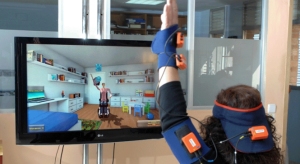
If you’re a person who plays video games a little bit or a lot, yet regardless you truly enjoy them as a hobby, or as part of your lifestyle, then it is entirely up to you to change people’s perceptions about what video gaming is and who video gamers are.
This blog is loaded with ammo that you can use to prove the usefulness of video games, and remind people that it isn’t simply a “waste of time”, and it certainly isn’t just a phase. Video games are social, they can help the ill, they can make you smarter, faster, they promote cognitive thinking, they help you think laterally and teach you how to solve problems. Last time I checked, the latest episode of The Big Bang Theory didn’t do that, and plenty of people spend hours on end watching that show (god knows why).
If you’ve played games for a while, I can say without a doubt that you have found memories playing video games with others til the early hours of the morning, or locking yourself in a room to play Bioshock Infinite back to front because the story line is just that good.
Playing games is something that you should be proud of, as it puts you within a community of great people (contrary to would some might have you believe), and the product itself is unlike no other.
So next time someone calls you out for playing video games, tells you to get a life or snarls that it’s bad for your health, tell them otherwise.



